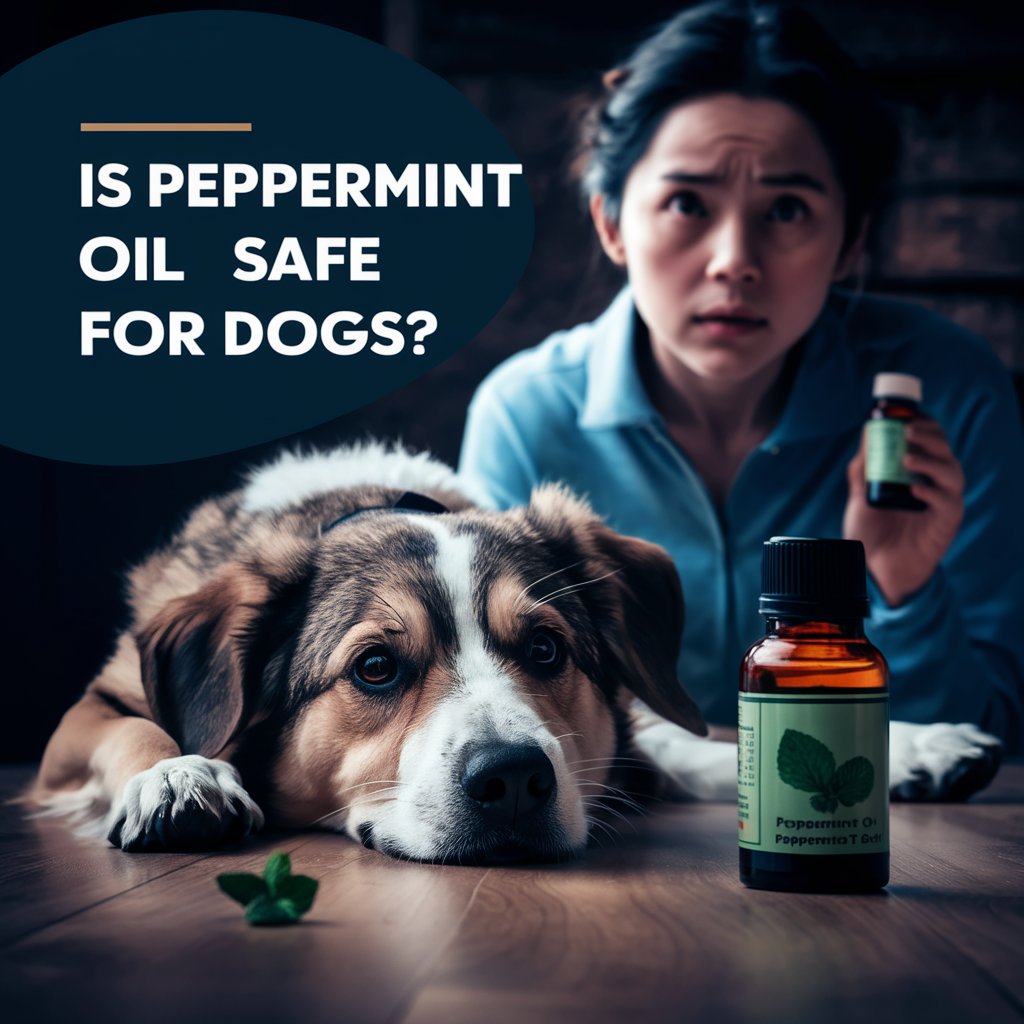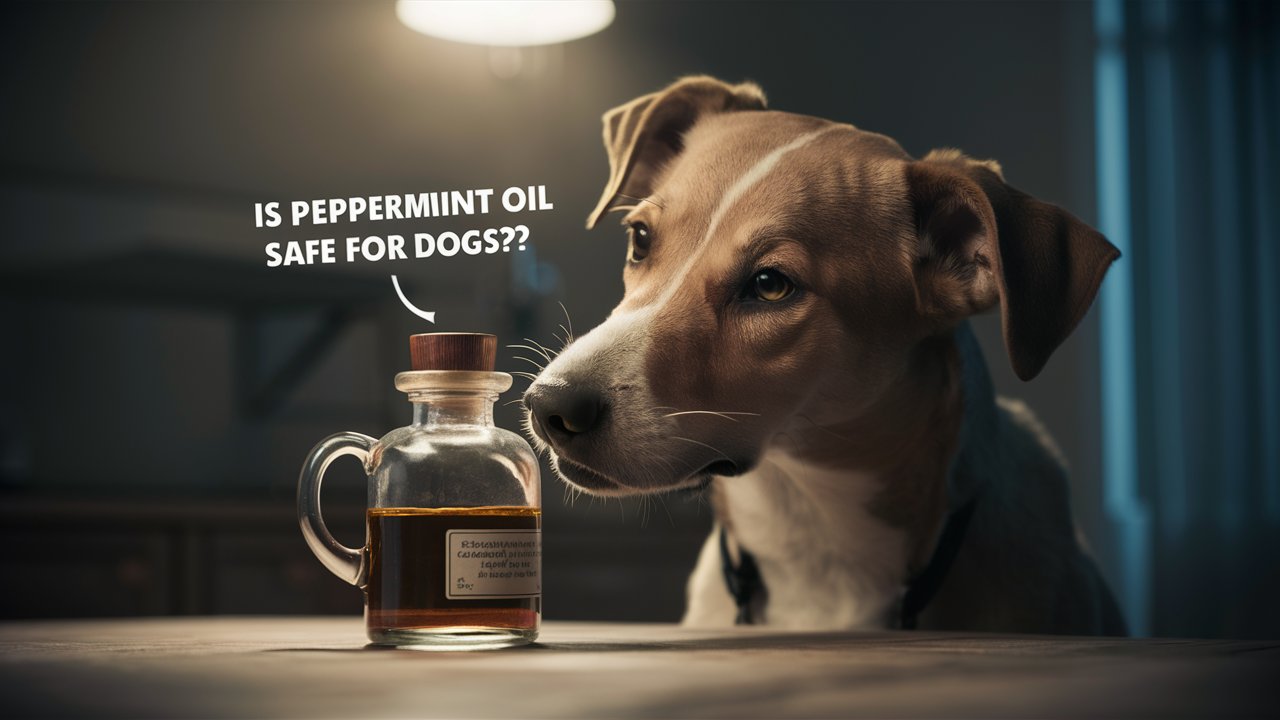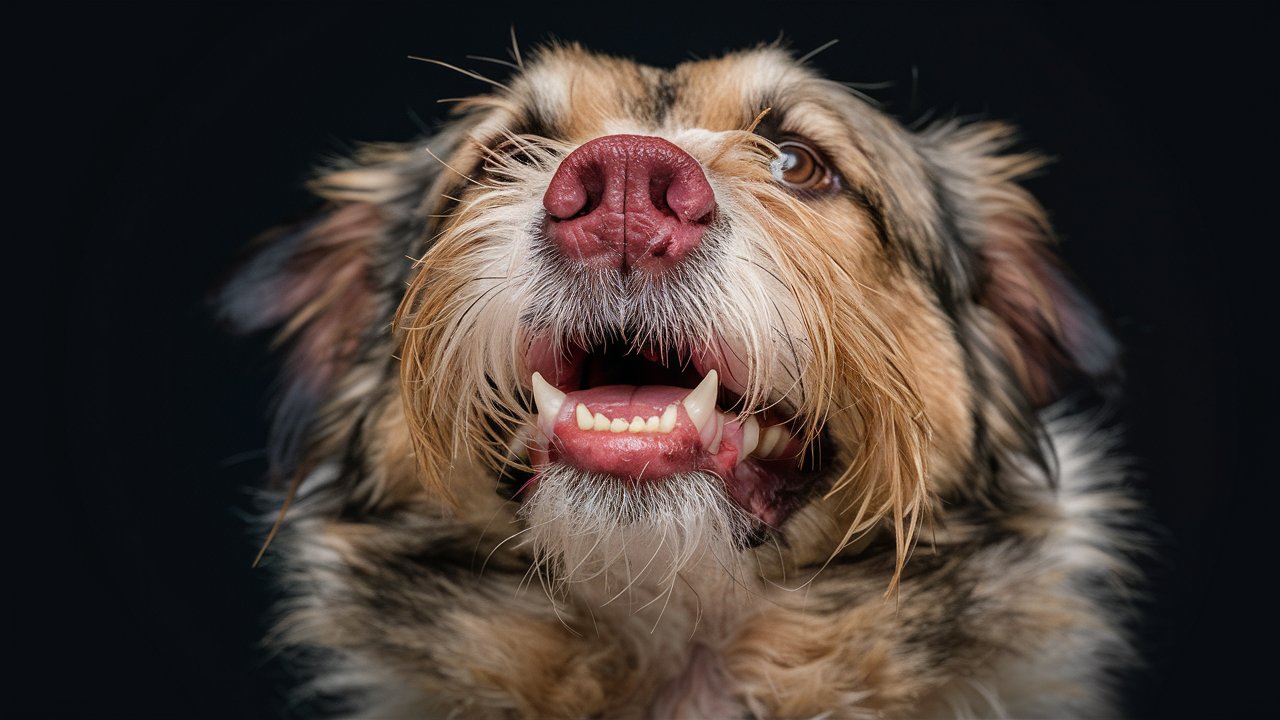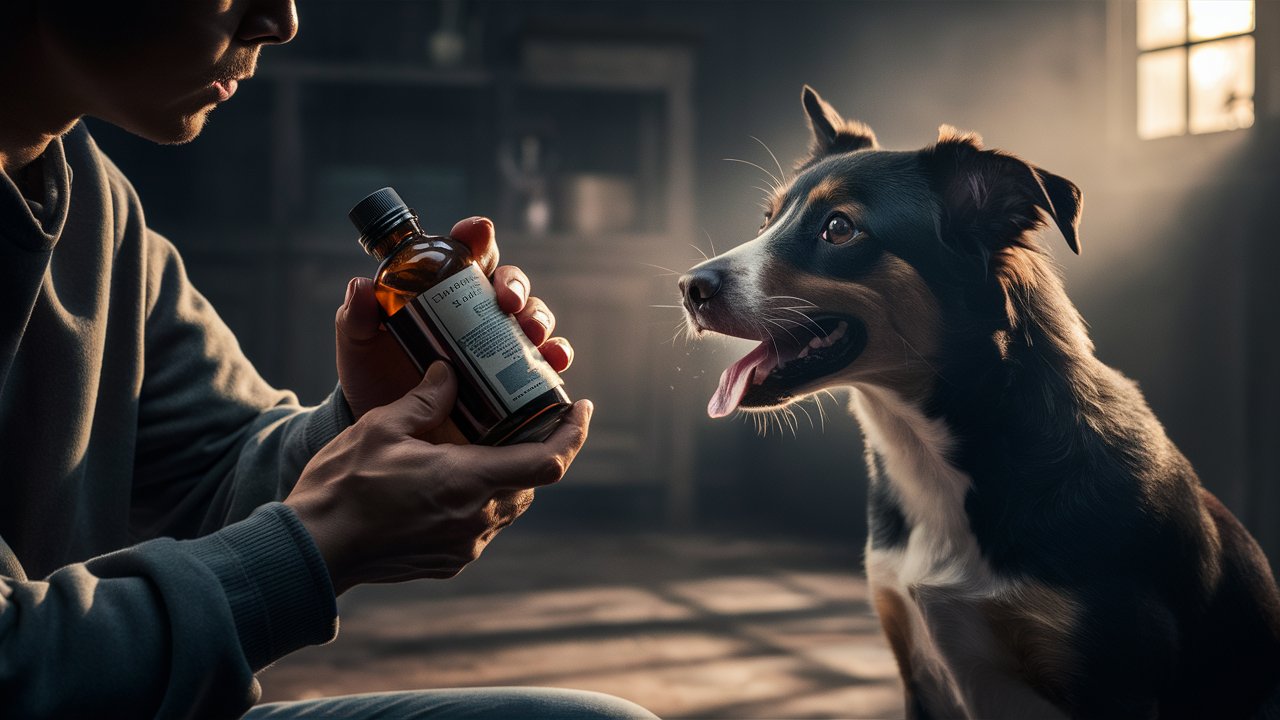
Is Peppermint Oil Safe for Dogs?
As a dog lover, you naturally want to keep your furry friend healthy and happy. With the growing popularity of essential oils, you might wonder, Is peppermint oil safe for dogs? Peppermint oil is well-known for its refreshing scent and various benefits for humans, but what about our pets? In this article, we’ll explore everything you need to know about using peppermint oil around dogs, including its potential benefits, risks, and safer alternatives.
What is Peppermint Oil?
Peppermint oil comes from the peppermint plant, which is a hybrid of watermint and spearmint. This oil is extracted through steam distillation and is highly concentrated. The main active ingredients in peppermint oil are menthol and menthone, which give it that characteristic minty aroma and cooling sensation. People use peppermint oil for a variety of reasons, from soothing headaches to relieving muscle pain.
Common Uses of Peppermint Oil
Peppermint oil is incredibly versatile. Some of the most used ways by people are:
- In Human Health: People use peppermint oil to treat headaches, reduce nausea, and even help with digestion. It’s also popular in muscle rubs to relieve pain and tension.
- In Household Products: You’ll find peppermint oil in many cleaning products, insect repellents, and air fresheners. Its strong scent is effective in keeping pests like ants and mice away.
- In Aromatherapy: The invigorating scent of peppermint oil is used to boost energy, improve focus, and reduce stress.

Is Peppermint Oil Safe for Dogs?
When it comes to our pets, the question Is peppermint oil safe for dogs? is very important. Dogs are much more sensitive to essential oils than humans, and peppermint oil, in particular, can be dangerous if not used correctly. While some dog owners use peppermint oil to repel fleas or soothe muscle pain, it’s essential to understand the potential risks involved.
Potential Benefits of Peppermint Oil for Dogs
You might have heard about some benefits of using peppermint oil on dogs, but it’s crucial to approach this with caution. Here are some major pros:
- Natural Insect Repellent: Some people use diluted peppermint oil to repel fleas and ticks. The strong scent can help keep these pests at bay.
- Muscle Pain Relief: Just like in humans, diluted peppermint oil may be used to soothe muscle aches in dogs.
- Digestive Aid: In very small, controlled amounts, peppermint oil might help with minor digestive issues, though this is not widely recommended.
Risks and Side Effects of Peppermint Oil for Dogs
Despite the potential benefits, the risks associated with peppermint oil are significant. Here are some of the important concerns:
- Toxicity: If ingested, peppermint oil can be toxic to dogs. Symptoms of toxicity include vomiting, diarrhea, drooling, and even lethargy. In severe cases, it can lead to more serious health problems like tremors or seizures.
- Skin Irritation: Applying peppermint oil directly to your dog’s skin can cause irritation, redness, or allergic reactions. Dogs with sensitive skin are particularly at risk.
- Respiratory Issues: Inhalation of peppermint oil can cause breathing difficulties, especially in dogs with existing respiratory problems. The strong fumes can irritate their airways and lead to coughing or wheezing.
- Neurological Effects: High doses of peppermint oil can affect your dog’s nervous system, potentially leading to symptoms like tremors or disorientation.

Signs of Peppermint Oil Poisoning in Dogs
If your dog has been exposed to peppermint oil, it’s crucial to recognize the signs of poisoning. These can include:
- Vomiting or Diarrhea: These are common signs of toxicity after ingestion.
- Excessive Drooling: This can indicate irritation in the mouth or throat.
- Difficulty Breathing: If your dog is struggling to breathe or is wheezing, this could be a sign of respiratory distress.
- Lethargy or Weakness: If your dog seems unusually tired or weak, it could be due to the effects of peppermint oil.
- Seizures: In severe cases, exposure to peppermint oil can cause seizures, which require immediate veterinary attention.
If you notice any of these symptoms, it’s essential to contact your veterinarian right away.
How to Use Peppermint Oil Safely Around Dogs
If you decide to use peppermint oil around your dog, it’s important to do so safely. Here are some tips to minimize the risks:
- Dilution: Always dilute peppermint oil with a carrier oil, such as coconut or olive oil.
- Application: Avoid applying peppermint oil directly to your dog’s fur or skin. Instead, apply it to your clothing or use it in a diffuser in a well-ventilated area where your dog has the option to move away if the scent is too strong.
- Avoid Sensitive Areas: Keep peppermint oil away from your dog’s face, especially the nose, eyes, and mouth. These areas are particularly sensitive and can easily become irritated.

Alternatives to Peppermint Oil
If you’re concerned about the safety of peppermint oil, there are several safer alternatives you can use:
- Lavender Oil: Lavender oil is known for its calming effects and is generally considered safer for dogs. It can help with anxiety and minor skin irritations.
- Chamomile Oil: Chamomile oil is another gentle essential oil that can soothe anxiety and promote relaxation in dogs.
- Non-Essential Oil Alternatives: For pest control, consider using non-toxic options like diatomaceous earth or pet-safe flea collars. These alternatives are effective and pose fewer risks to your dog’s health.
What to Do If Your Dog Has Been Exposed to Peppermint Oil
If your dog has been exposed to peppermint oil, either through ingestion or skin contact, it’s important to act quickly:
- First Aid: If the oil is on your dog’s skin, rinse the affected area with warm water and mild soap to remove as much of the oil as possible. If your dog has ingested peppermint oil, try to prevent further licking and contact your veterinarian immediately.
- Veterinary Care: Depending on the severity of the symptoms, your vet may recommend treatment such as activated charcoal to absorb the toxin, IV fluids to prevent dehydration or other supportive care. In serious cases, hospitalization is important.
Veterinarian Opinions on Peppermint Oil for Dogs
Most veterinarians advise against using peppermint oil on or around dogs. The consensus is that the risks outweigh any potential benefits. While peppermint oil can be safe for humans, dogs have different physiologies and sensitivities, making them more vulnerable to the adverse effects of essential oils.

DIY Recipes Using Peppermint Oil – Safe for Dogs?
You might come across DIY recipes that include peppermint oil for things like homemade dog shampoos or flea sprays. But Is peppermint oil safe for dogs in these DIY solutions? The answer is usually no. Most DIY recipes are not formulated with dogs’ unique needs in mind and can result in unintended harm. If you’re looking to create your products, it’s better to use dog-safe alternatives or consult with a veterinarian before trying anything new.
The Role of Peppermint Oil in Flea and Tick Prevention
Peppermint oil is often suggested as a natural flea and tick repellent, but how effective is it? While peppermint oil’s strong scent might help repel some pests, it’s not as reliable as traditional flea and tick prevention methods. Products like vet-approved flea collars, topical treatments, and oral medications are generally more effective and safer for your dog. If you’re considering using peppermint oil for this purpose, it’s best to consult your vet first.
Conclusion: Is Peppermint Oil Safe for Dogs?
So, Is peppermint oil safe for dogs? The answer is that while it has some potential benefits, the risks are significant. From toxicity and skin irritation to respiratory and neurological issues, peppermint oil can be dangerous for dogs if misused. If you’re considering using essential oils around your pet, it’s crucial to choose safer alternatives and always consult your veterinarian before introducing anything new into your dog’s environment. Your dog’s health and well-being should always come first.

FAQs: Is Peppermint Oil Safe for Dogs?
Is the smell of peppermint oil harmful to dogs?
Yes, the smell of peppermint oil can be harmful to dogs. It can irritate their nose and throat, making it hard for them to breathe properly.
What essential oils are dog-safe?
Some essential oils that are safer for dogs include lavender, chamomile, and frankincense. However, it’s important to use them in a diluted form and ask a vet before using any essential oil around your dog.
Is peppermint rodent spray safe for dogs?
No, peppermint rodent spray is not safe for dogs. The peppermint oil in these sprays can be harmful if your dog breathes it in or gets it on their skin.
Is peppermint oil shampoo good for dogs?
Peppermint oil shampoo is not a good choice for dogs. Skin and allergic reactions may occur. It’s better to use shampoos made specifically for dogs.
What animals don’t like peppermint?
Many animals, like mice, insects, and even some larger animals like deer, don’t like the smell of peppermint. It helps keep them away, but you should be careful using peppermint around pets, especially dogs.
Are Bully Sticks Safe for Dogs?

I’m Haseem Ali, a passionate writer focused on dog diet, health, training, lifestyle, and care. I’m dedicated to sharing expert advice and practical tips to help fellow dog owners provide the best for their furry friends. When I’m not writing, I enjoy spending time with my own dogs and exploring new pet-friendly activities.
